Best Belarusian war movies
Get ready to binge. We've found a collection of must-watch war films from Belarus, now streaming on Netflix, HBO, Hulu, Prime Video, and other top services!
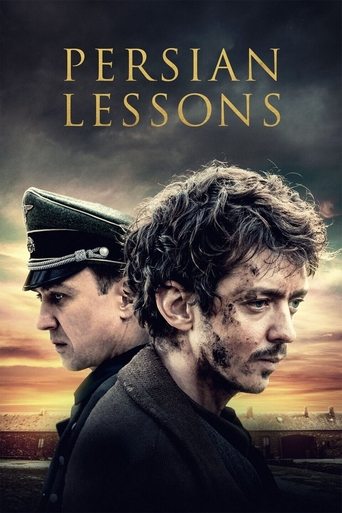
Persian Lessons 2020
Occupied France, 1942. Gilles is arrested by SS soldiers alongside other Jews and sent to a camp in Germany. He narrowly avoids sudden execution by swearing to the guards that he is not Jewish, but Persian. This lie temporarily saves him, but Gilles gets assigned a life-or-death mission: to teach Farsi to Head of Camp Koch, who dreams of opening a restaurant in Iran once the war is over. Through an ingenious trick, Gilles manages to survive by inventing words of "Farsi" every day and teaching them to Koch.
75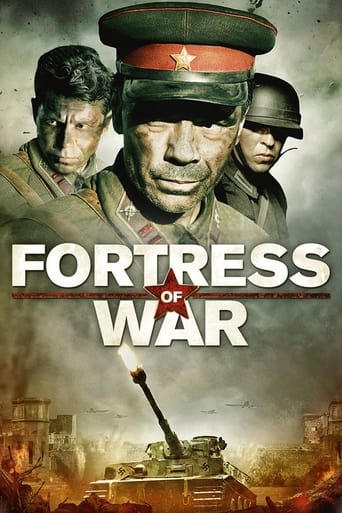
Fortress of War 2010
The film covers the heroic defence of the Brest Fortress, which was attacked during the first strike of German invaders on June 22 1941. The story describes the events of the first days of the defence, including the three main resistance zones, headed by the regiment commander, Pyotr Mikhailovich Gavrilov, the commissar Efim Moiseevich Fomin and the head of the 9th frontier outpost, Andrey Mitrofanovich Kizhevatov. Many years later veteran Alexander Akimov again recalls the memories of the time, when he, then a 15 year old Sasha Akimov was deeply in love with the beautiful Anya and suddenly found himself in the middle of the bloody events of war.
75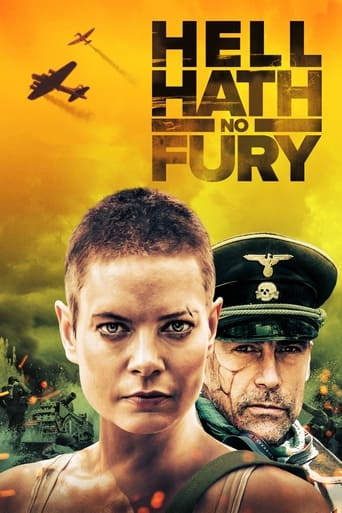
Hell Hath No Fury 2021
Branded a traitor by her countrymen, French national Marie DuJardin is rescued by American soldiers on one condition: to survive, she must lead them to a cache of gold - before the Nazis return to claim it for themselves.
63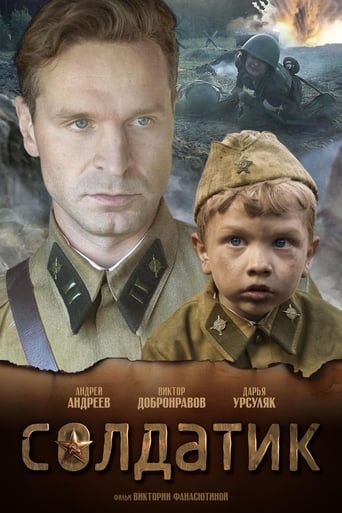
Soldier Boy 2019
This is a story about exciting events that occurred in the life of the smallest soldier - the hero of the Great Patriotic War, six-year-old Sergei Aleshkov. He lost all his relatives and got into the army. With a six-year-old boy, they started playing the soldier game in order to preserve his childhood, and he, in order to comply with this honorary title, became a real defender of the Motherland.
68Task For You 2004
Based on the novel of the same name by Nikolai Cherginets. The film begins in the spring of 1941 and ends with the first months after the liberation of Belarus. In the center of the plot of the film – the story of three brothers Kuprevich. Police Lieutenant Alexei Kuprevich receives an appointment as an operative in one of the districts of Western Belarus. His task – to neutralize the rampant gang there "forest brothers". War begins. Alex and his brother, senior police Lieutenant Peter Kuprevich receive the first combat mission: to destroy the landed settlements under the German assault...
64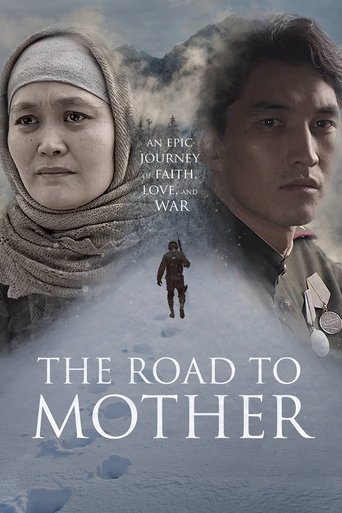
The Road to Mother 2016
When the Soviets impose new ways of collective farming and permanent settlements on a region of nomadic dwellers, young Ilyas is separated from his mother, Mariam. Through decades of war, mother and son persevere in their efforts to be reunited.
95On the Nameless Height 2004
The location is the Belarusian forests, close to the Polish border, during Operation Bagration in the summer of 1944. After a short pause, the Red Army is preparing to advance, but on one segment of the front there are two serious obstacles: an unnamed hill with unknown German strength, and a highly skilled German sniper, who is killing off not only Russian officers, but also all captured German officers before they can be interrogated. Because of this, the local commander, Major Inozemtsev, suspects that the hill is a trap, which the Germans are very eager to keep a secret.
78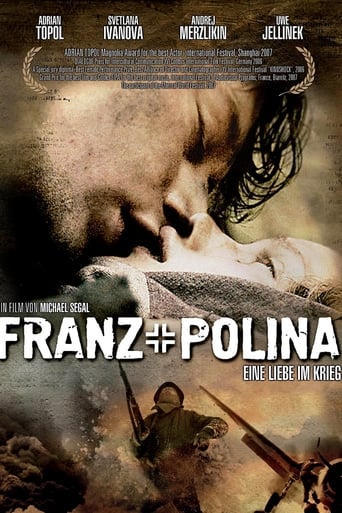
Franz + Polina 2006
The movie tells the story of Franz, a Waffen-SS soldier who deserts, and Polina, a Belarusian woman whose village is razed and people massacred.
68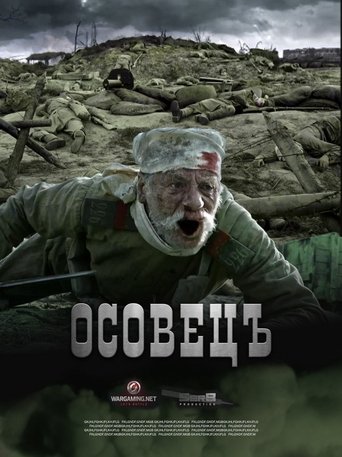
Attack of The Dead: Osovets 2018
August 6, 1915. After several unsuccessful attempts to assault the positions of the Russian army, the command of the German troops is decided on a new one. On the eve of the attack on the position of the Germans deliver cylinders with chlorine. Lieutenant Kotlinsky accidentally learns about the upcoming use of chemical weapons, but he does not have the time and opportunity to protect his people. All that remains for him is to set up a company to fight to the last.
75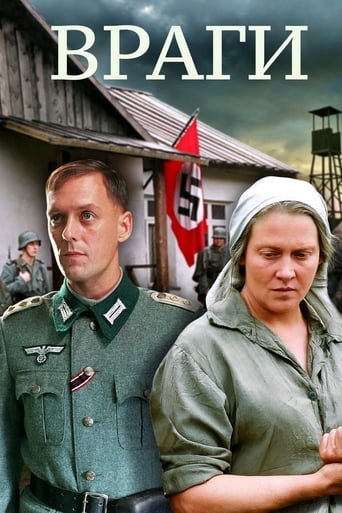
Enemies 2007
Belarus, summer 1942. The war has moved on, far off to the east. The life of a small town where the German authorities of the region have set themselves up is getting back to "normal". The Germans study Russian, flirt with the local girls, the women wash their clothes and feed them. They have to carry on somehow... But suddenly the teenage son of the film's heroine decides to run away to the partisans and blows up a German train so that they could accept him. He gets caught and the Germans have to execute him in order "to teach others a lesson". That's the order and it can't be disobeyed. The Germans know that this execution will bring an end to their peaceful lives. The local commandant understands this better than anyone as he is already involved in a close relationship with the boy's mother. But he can't ignore an order from his commanders...
57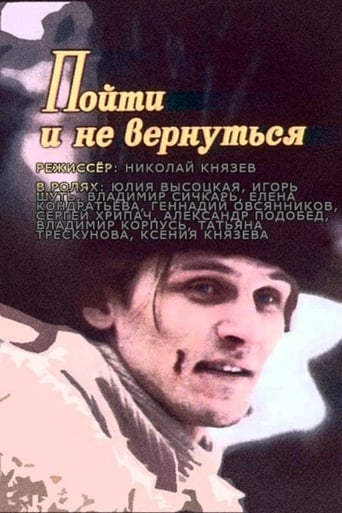
To Leave and to Not Return 1992
A tragic story of love and betrayal during WWII.
35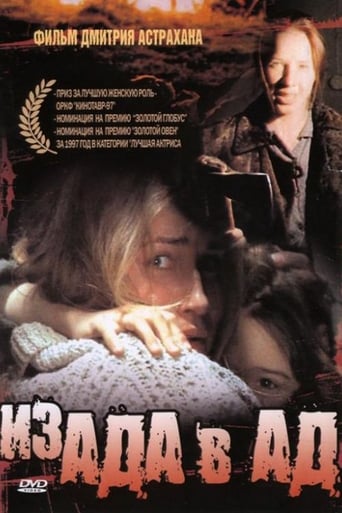
From Hell to Hell 1997
Focuses on the lives of two married Polish couples (one Jewish, one Catholic) and the personal and social devastation wrought by the Holocaust and its aftermath.
20Girl Seeks Father 1959
A girl searches for her father while beeing chased by Nazis.
10Across the Cemetery 1965
On his way to conquer Moscow, Hitler first had to occupy Belorussia and Ukraine, which is why it's no wonder that a large and important segment of Soviet partisan cinema stems from these two Soviet republics as a result. In Belorussia, the foremost poet laureate assigned to commemorate the horrors and celebrate the glories of the Great Patriotic War was People's Artist of the USSR Viktor Turov. His dedication to the genre was deeply personal. Turov, born in 1936, spent his childhood in a German concentration camp along with his mother and sister, while his father, a partisan, died in battle. Turov's righteous anger, passionate call-to-arms, and simultaneous embrace of humanism as parallel forces of salvation are therefore not a result of any ideology, but rather deeply felt moral imperatives, already forming the driving force for his first feature Cherez kladbishche.
10